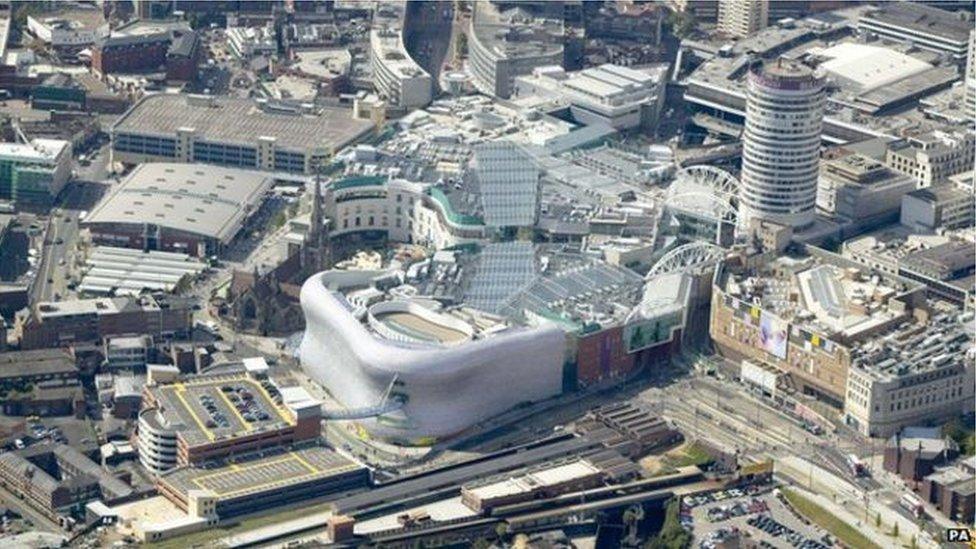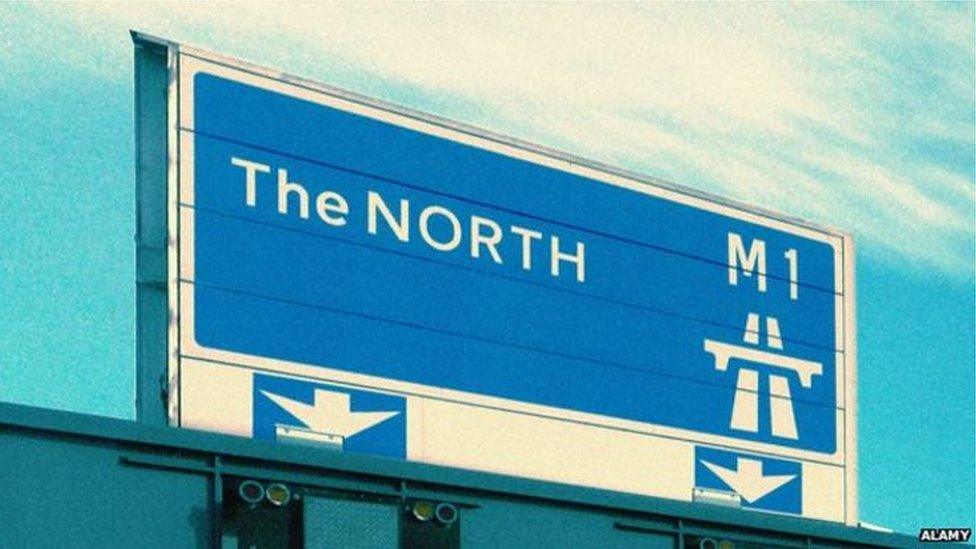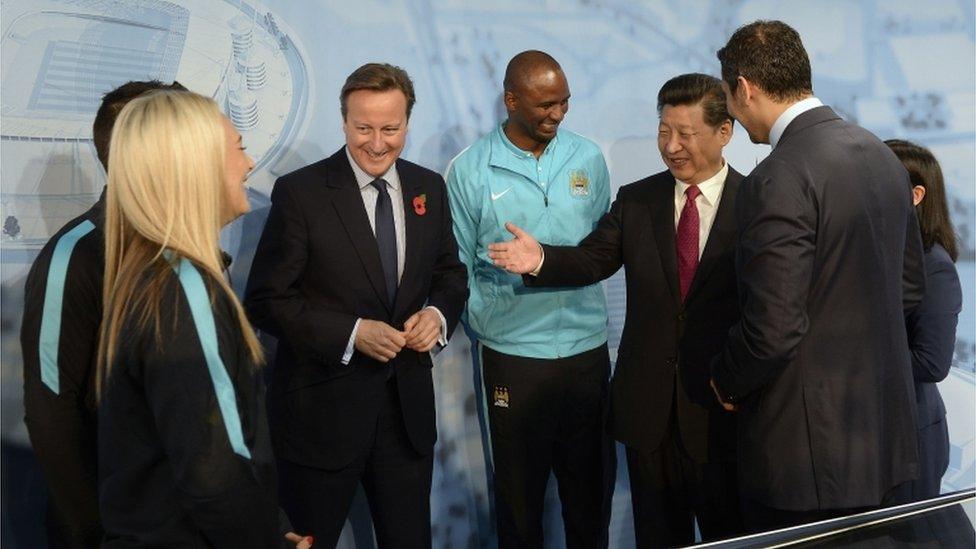Midlands Economic Engine could be running by April
- Published
- comments

Plans for the new West Midlands Combined Authority are in and submitted to the government for review
Just under a year since that "historic agreement" between Birmingham and the four Black Country councils, we now have a clear timetable for the formation of the Midlands "Economic Engine", our answer to that much-hyped "Northern Powerhouse".
Now the 'shadow' authority, formed to pave the way for it, has submitted its final scheme and governance review to ministers. So the clock has started ticking.
The government will review the submission and, provided it meets its statutory requirements, an order will be created in about six weeks' time. Communities Secretary Greg Clark will then run a two-month consultation process. The proposals will be debated in both houses and, if approved, Mr Clark would then be able to confirm the establishment of the new authority.
This earliest possible date under this schedule would be April next year.
"Stronger Economy"
The chairman of the 'shadow' combined authority, Councillor Bob Sleigh, Conservative leader of Solihull Council, is not exactly holding back.
Having started out as the most reluctant partner, he is now positively gushing:
"This is an exciting time for the West Midlands. Fifteen members are now signed up to the emerging West Midlands Combined Authority and are committed to working together to build a stronger economy and better public services with new jobs, better skills, more housing and quicker transport links that will benefit local people and businesses throughout the region," he said.

Can the West Midlands match the growing traction of the Northern Powerhouse.
That reference to "fifteen members" is significant because it reinforces the claim by leading local decision-makers that the Midlands has enough critical mass to rival its northern counterpart.
In addition to the seven 'constituent' metropolitan authorities including the cities of Birmingham, Coventry and Wolverhampton, five neighbouring district councils want to be associate members: Cannock, Nuneaton and Bedworth, Redditch, Tamworth, Telford and Wrekin. Then there are the three business-led local enterprise partnerships in Birmingham and Solihull, Coventry and Warwickshire and the Black Country.
Details such as the exact geography, funding, powers, duties, and executive arrangements are all enshrined in the scheme submitted to the government.
Jam Layer
For people still struggling to get their heads around the complexities of the two-tier system of local government (outside the metropolitan and unitary areas) this may look like a bridge too far.
Sceptics warn it will all end in tiers: more politicians, more bureaucrats and worst of all, an unwanted elected mayor?
"Exciting" though the promised 'Devolution Revolution' may be for the politicians, it has yet to gain traction at street level.
On the contrary, what public sentiment there is on this question is generally hostile to the idea of yet another 'jam layer' in the governmental cake, especially if that executive mayor means an extra precept on top of the council tax.

The devolutionists will have their work cut out during that consultation period to persuade the doubters that the people and resources will be drawn mainly from within the current resources of local authorities and the political and spending powers constitute a redistribution from central government departments of existing powers, duties and funding streams.
Bargaining Power
Already, eyes are turning to the next stage of these negotiations.
The revelation that George Osborne had intervened to switch the final leg of Chinese President Xi's State Visit from Birmingham to Manchester has clearly riled those local MPs who already think the Chancellor is obsessed with his friends in the North to the exclusion of all others.
The Conservative former Deputy Prime Minister Lord Heseltine, whose "No Stone Unturned" report kick-started the entire devolution debate, acknowledged in an interview with BBC WM that because negotiations were so far advanced with the Northern Powerhouse, the Midlands already had correspondingly less bargaining power.
During Prime Minister's Questions, Lichfield's Conservative MP Michael Fabricant gave full vent to his frustrations, pointing out to David Cameron that the West Midlands is alone in the UK in having a trade surplus with China, and that the World's second biggest economy is our region's largest export market.
'Be bold'
David Cameron replied that there was no reason for the West Midlands to be left behind. "Be bold!" he declared. Because the bolder the proposals coming from here, the bolder would be the government's reply.
That has to be a reference to that directly-elected mayor, which the government has repeatedly told us would be a precondition for the maximum level of devolved political and spending power. And the signs are that the region's MPs are already 'upping the ante', getting their retaliation in first.
Nineteen of them have signed a letter to George Osborne warning him that if he expects the region to accept an elected mayor, he will have to sweeten the deal with many more billions of pounds to be devolved from central government to match our region's status in Britain and the world.
Among the signatories is the Labour MP for Birmingham Edgbaston, Gisela Stuart, a long-time cheerleader for devolution. I will be asking her exactly what she wants from the Chancellor when she joins me in the studio for this weekend's "Sunday Politics". And I hope you will join me too in our usual 11.00 slot on BBC One Midlands this Sunday, 1 November 2015.